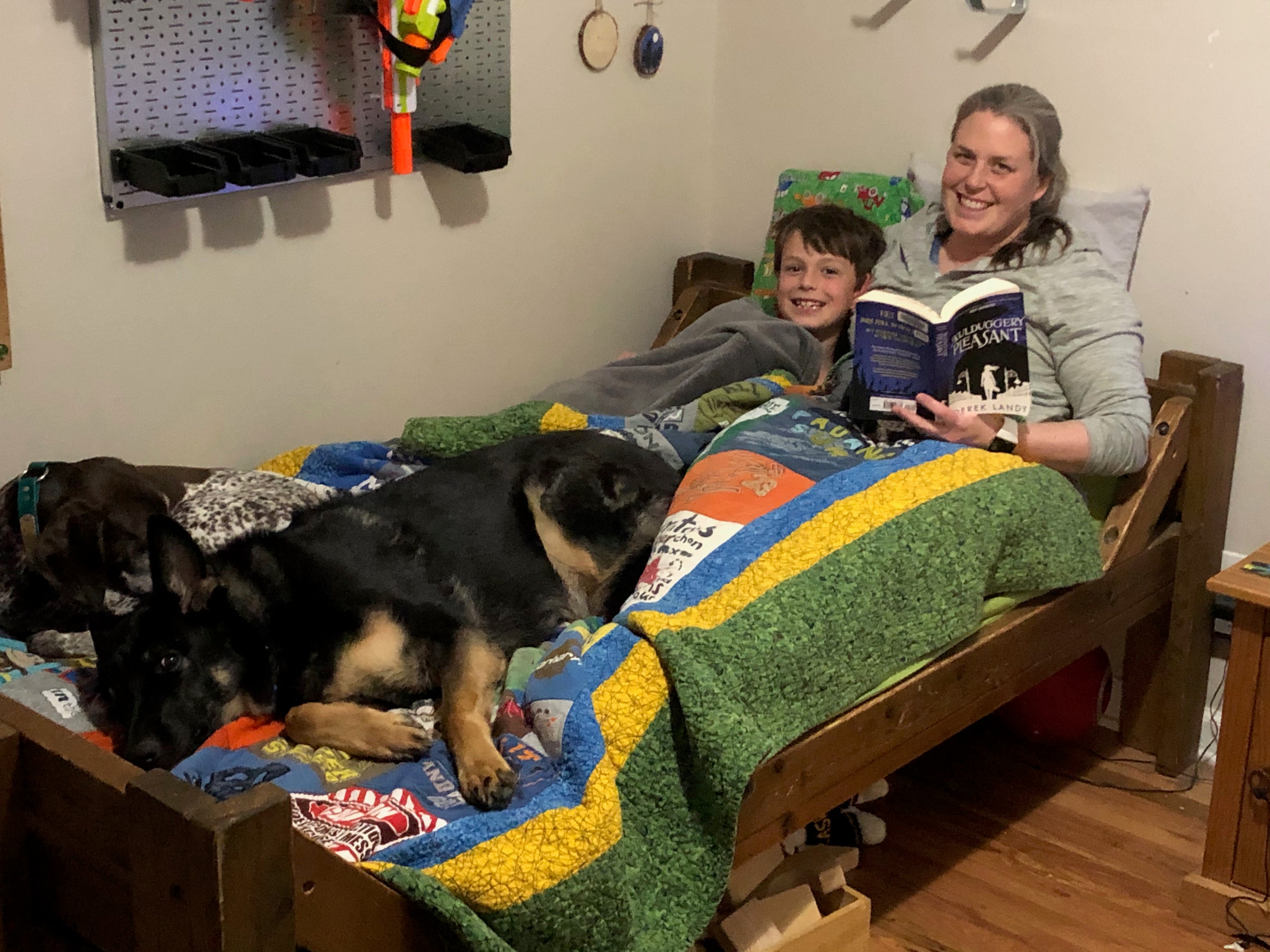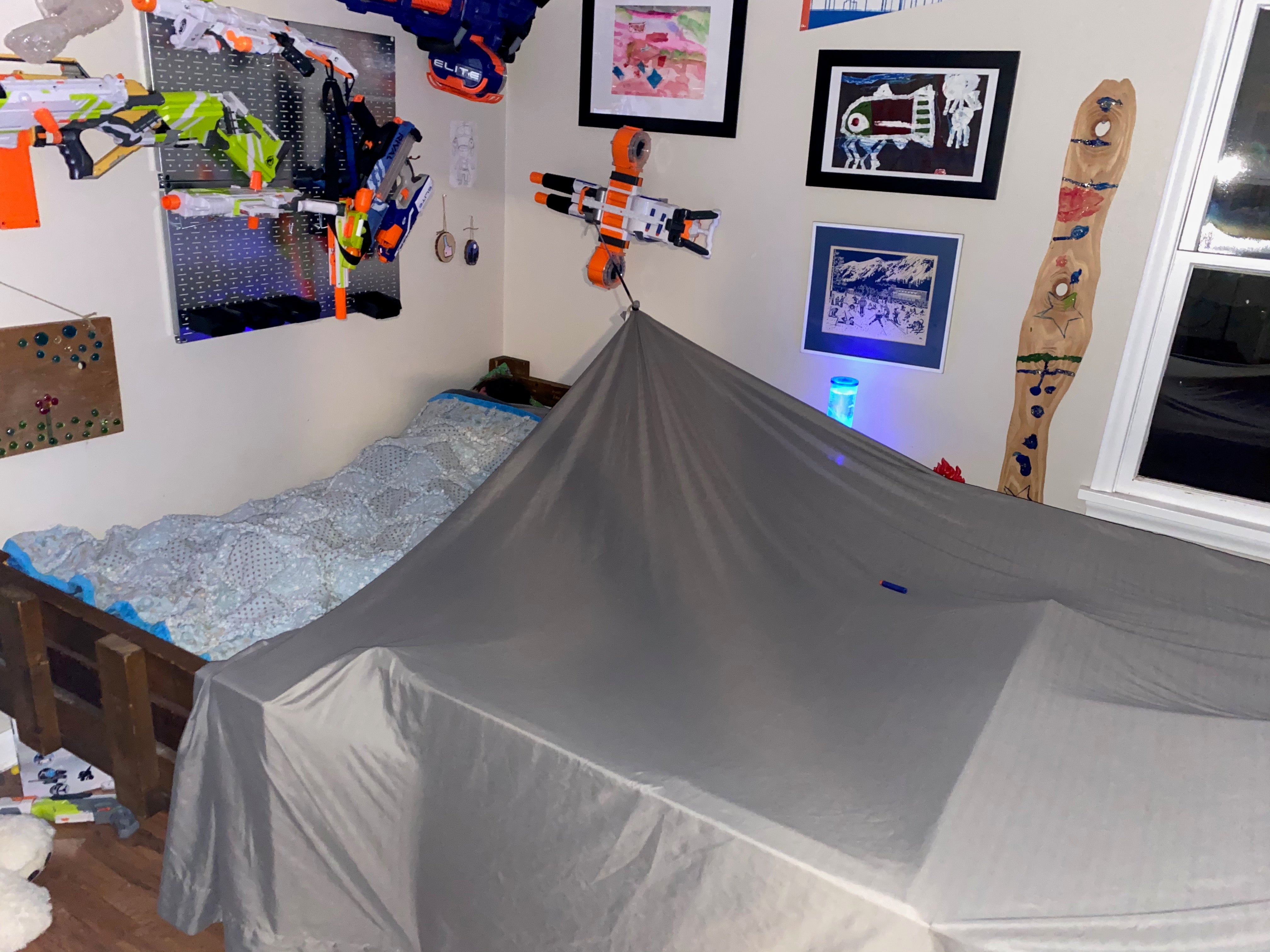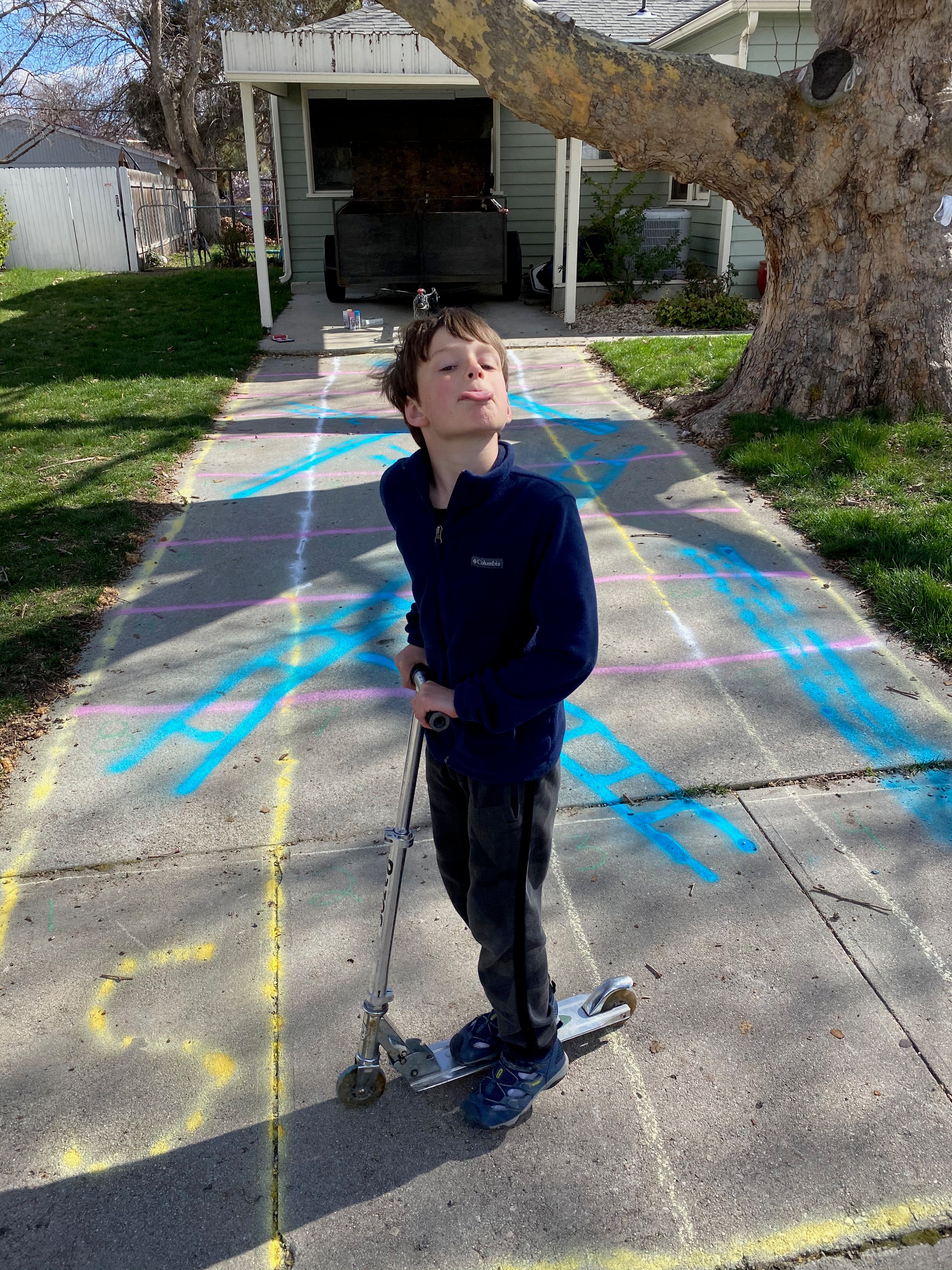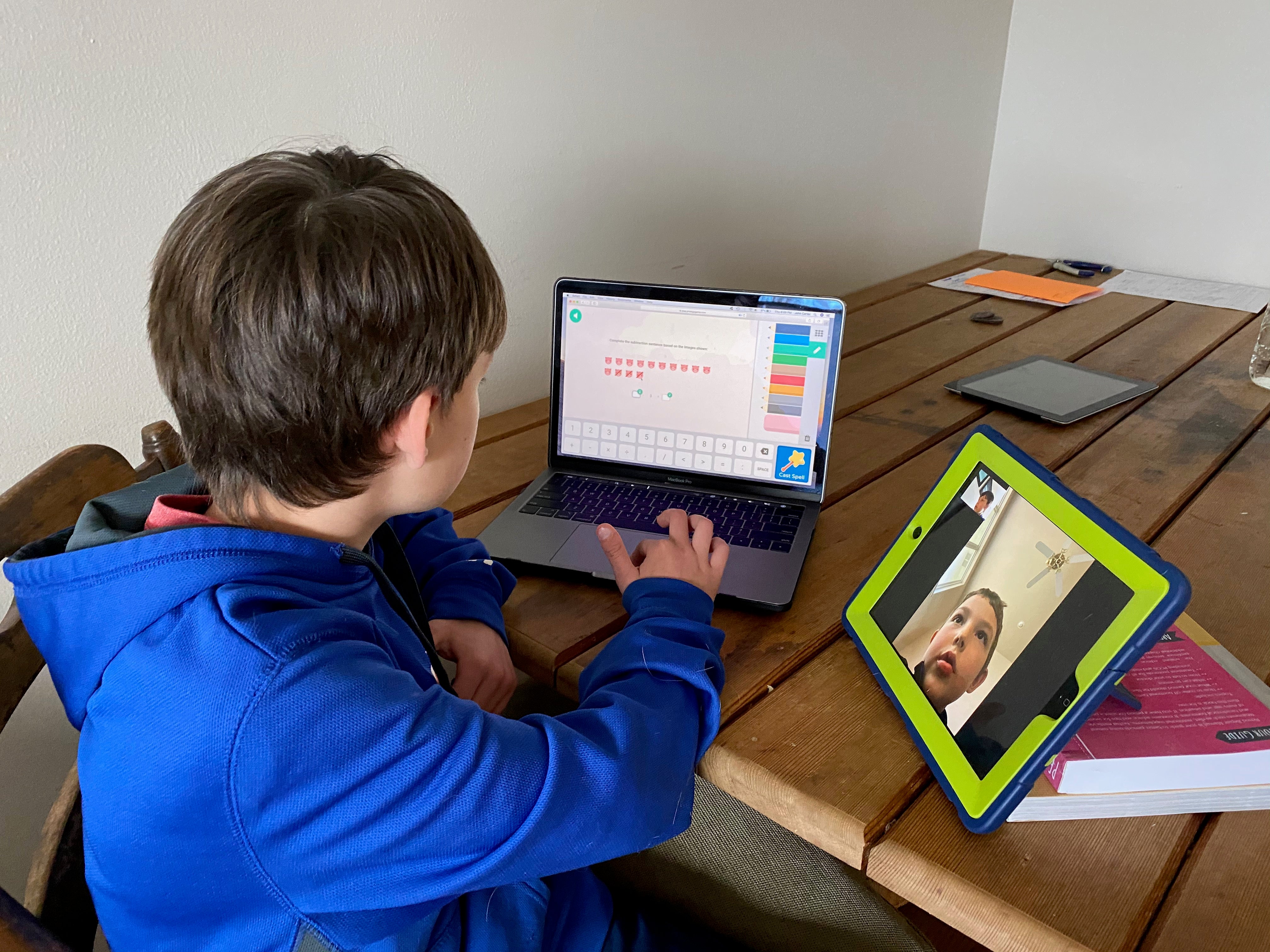Deb Carter, interim associate dean for undergraduate studies and professor of early and special education, has compiled her top 10 tips to support consistent, predictable, positive, and safe environments where our connection and relationships can thrive (or at least survive) while working and learning from home. In her audio slideshow, which can be found in the post below the tips, Deb has shared a personal message with her philosophy on how you can best support kids’ behavior at home during a difficult time.
Deb Carter’s Top 10 Tips to Support Home Learning and Development for Kids (photos provided by Deb Carter):
1. Focus on relationships: Carve out and protect time to connect with your kids each day. This time doesn’t always have to be long, but try to be fully present and available.

2. Keep expectations manageable (both for you and your kids): In this new reality, we are all facing competing demands. Set realistic expectations for yourself (I’m still working on this!) and also for your kids. Make sure to provide breaks, encourage movement, and limit the total time you expect kids to engage in academic tasks (the goal at our house right now is four 30-minute blocks of time each focused on something different and spread out throughout the day).
3. Let children’s interests lead the way: Figure out what your child is interested in and let that guide their academic endeavors. My son has always loved stories and he currently wants to become an author when he grows up. Writing has become a big part of our routine and, because he’s 7 and thinks farts are funny (who doesn’t, really), we’re indulging his “potty” humor. His writing is growing either way!

4. Follow consistent routines (as much as possible): I’ve seen a lot of beautiful examples of daily schedules for homeschooling and they seem great but they haven’t worked for our family. Instead of focusing on a schedule of activities for the day, we’ve focused on building consistent routines to help our son feel safe and support his independence. The distinction for us is a focus on how we do things rather than on when we do them.
-
- Note: Our exception to this is bedtime which is always (that’s a strong word, make that almost always) at the same time.
5. Create space for everyone in your house: We’ve all heard recommendations to create spaces to work and this is definitely important! I encourage you to also create space for each person in your house to retreat. We live in a small home and sometimes it is hard to think straight with all of the noise and activity. For my 7-year-old, his retreat space is a fort we built in his room. We’ve also created some spaces to retreat together like a “fort” we slept in one night behind our dining room table. It was a great chance to “get away” from the same old routine and it gave us space and time to connect.

6. Provide choices throughout the day: Choice provides children an opportunity to make decisions and a sense of autonomy. It also helps them build decision-making skills. Choices don’t have to be complex. In fact, for young children, simple either/or choices are great. In our house, we give our 7-year-old choices as we plan out the day. One day he might have a choice between reading or writing time or between two different “academic games” like Prodigy or Adventure Academy. He also has choice in the order of events for the day (although we don’t let all the favorites be first).
7. Acknowledge children’s efforts: Creating a positive environment and letting children know that you see their efforts is important. It is easy to fall into traps of constantly redirecting children but the more we can acknowledge their efforts and attempts, the less we ultimately need to redirect. There is a mind shift involved from responding after-the-fact to acknowledging up front. The time that it takes us may still be the same but the interactions feel better to everyone.
8. Get outside each day: Fresh air clears the mind and breaks up the monotony of the day. It also gives us space to move and explore. Take a walk, sit in a hammock, dig in the dirt, or kick a soccer ball. Taking a daily work break to play outside with my son has been a benefit of being forced to stay-at-home. I’m hoping a break to get outside is a work habit that I hold onto.

9. Model what you want to see: Honestly, this one is the hardest for me because I am 100% aware of where my child learned some of the behaviors that frustrate me the most. Children watch us and reflect back what they see. This doesn’t mean that we have to be perfect — I am certainly not but, when I make mistakes and poor choices, I do try to own up to them. Processing them with my son allows him to see that it is ok to make mistakes and that we are all learning, growing and finding our way.
10. Play and laugh together: Play is important no matter your age and it is how children make sense of their world. Encourage your child to play and find opportunities to play alongside them. Play is a rich space for connection and an opportunity to step away from stress and worry. We have been playing a lot of board games, building things together, and seeking opportunities to play with family and friends outside of our house (via technology) as well.

One final “bonus” tip is to recognize challenging behavior as a form of communication. It isn’t personal and children are telling us what they need if we are open to listen (which can be SO HARD when our own emotions get heightened). In our house, rising tensions and frustrations often signal a need for attention and comfort. These are uncertain and stressful times for all of us and we need to allow ourselves and our loved ones to process and seek support (even if we don’t always go about it in the best way).
If you are interested in learning more about supporting your children during the pandemic, including exploring research-based strategies for responding to and preventing challenging behavior, I wholeheartedly recommend visiting the National Center for Pyramid Model Interventions.